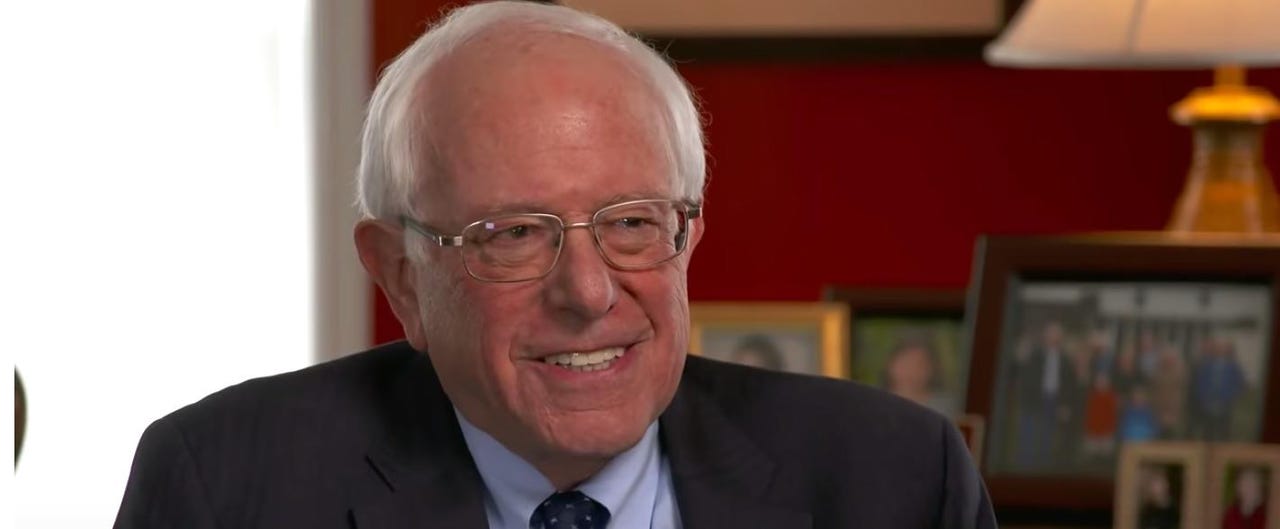Bernie Sanders wants you to expose your friends, Facebook-style

Sophisticated? Or slightly creepy?
I'm not sure I'm stricken with election fever yet.
It's more election eczema, a sort of itchy feeling I wish would just go away.
Still, the system is what it is. One that, some say, has enjoyed Facebook contributing to its subversion.
I was a touch bemused, therefore, to hear of a new app emitted by the campaign of Bernie Sanders. It seems to have a Facebook flavor about it.
The Democratic candidate now has an online tool that encourages his supporters to provide the campaign with data.
We're all familiar with the power of data collection. It can create wonderful insights and very bad election predictions.
What's touching about BERN -- the elegant name of this tool -- is that it asks supporters to, well, inform on the political proclivities of their friends, their families, and even strangers they encounter.
Reports suggest anyone's name can be entered, together with their alleged propensity to vote for Sanders, as well as other aspects such as the things they most care about and their union membership.
Indeed, one exchange published on Twitter appears to show someone asking Sanders' support staff: "You want me to say who my mom supports if she doesn't support Bernie?"
The response: "Correct! For any friend you add, you can note their level of support for Bernie, including "will not support," and who they are likely to vote for.
Totally not creepy at all. pic.twitter.com/9ds33HPJXP
— The Hoarse Whisperer (@HoarseWisperer) April 29, 2019
Supporters of this method will, no doubt, suggest this is merely modern community organizing. It's saving time for those who, nearer the election, call or text to ask whether you're a supporter. It's giving the Sanders campaign data so that it can target the possibles rather than the nevers.
Those a touch more skeptical of Sanders and his campaign's methods might wonder what right anyone has to inform on someone else's political beliefs. Or, should one say, alleged political beliefs.
"My sister is 20% Bernie, 30% Trump, 30% Buttigieg, and 20% undecided. I think. And she really cares about giraffes. But don't tell her I said so."
Skeptics might also wonder about the consent thing that more people seem suddenly to care about.
Mutterances about privacy have increased of late. It seems back into vogue. Why, even United Airlines has covered up the cameras on its inflight entertainment systems.
There are, indeed, advantages to preserving a little of oneself to oneself, as opposed to, say, everyone else knowing what you think and do.
Would it matter if your friends told Sanders' campaign you're a fan, when in fact you're going to vote for Donald Trump?
It might if you began to be bombarded with Sanders campaign messages such as "sign up for our online tool and inform on your friends too!" It also might if this technology ends up creating larger profiles of individuals.
Perhaps data will, indeed, be the crucial factor in deciding who the people -- well, at least some of the people -- might want elected this time.
Perhaps this tool will enhance Sanders' chances of galvanizing whole communities. Or perhaps some nefarious types will attempt to seize its data for ill.
Sanders may be among the first candidates to launch an app, but he won't be the last. A presidential campaign is a marketing exercise and data collection should be an issue just like it is for business. Trump worked social well. Obama leveraged data analytics and the cloud. And often the success of a party comes down to how it manages data and engages its audience. Or, at least, that's what tech types would like to believe.
I worry that just as Facebook's saintly intentions gave way to life's sinful realities, technology hasn't always contributed positively to the political forum and it may only get worse.
You see, I tend to favor shutting down Facebook, Twitter, and the like for weeks before an election.
When it comes to voting, people need time and space to think. Without too much interference from anyone else.
Naive, I know.
